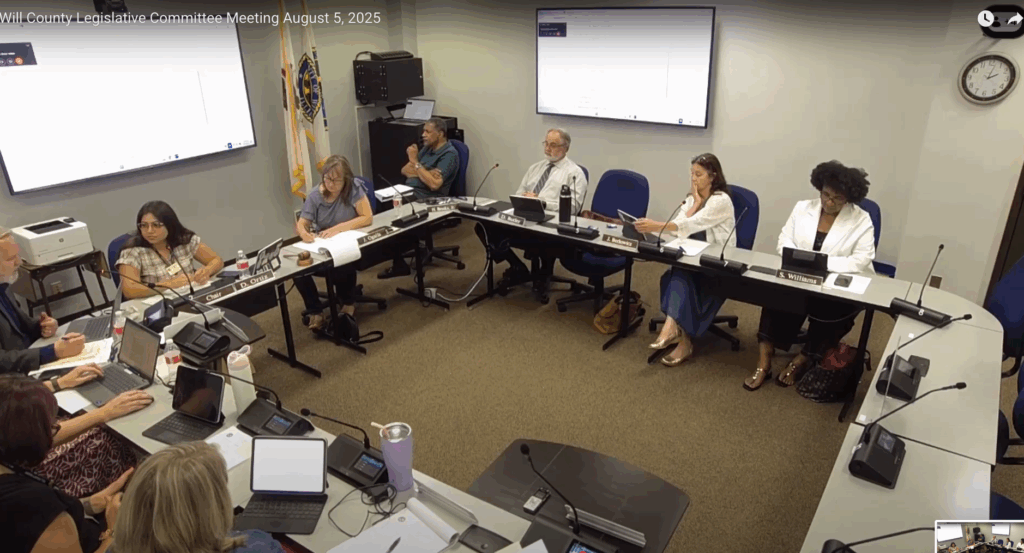
Trump administration finds SNAP fraud
Amid the ongoing government shutdown, the U.S. Department of Agriculture is seeking to root out fraud in the Supplemental Nutrition Assistance Program, also known as food stamps.
Steven Vaden, the deputy secretary of the USDA, spoke on Thursday about his reform attempts throughout the agriculture agency during a panel at the Federalist Society’s National Lawyers Conference.
Vaden recognized the SNAP program helps people throughout the country with food assistance but also said that the system does not require proper income and asset evaluations for individuals on the program.
Vaden said the USDA launched data collection from states across the country that participate in SNAP to understand where benefits are going.
He recounted several examples of fraud that USDA has discovered. In once case, an individual received SNAP benefits in six different states. In a separate case, one individual had more than $50,000 on their Electronic Benefits Transfer, or EBT card.
An EBT card is used similarly to a credit card for individuals who are on government assistance programs like SNAP. Vaden explained that remaining funds on EBT cards can roll over month-to-month if they are not fully used.
“The taxpayers have a right to know what is being done with their money and that, when we have appropriations, we are spending more than nine billion a month,” Vaden said.
On Oct. 31, a federal judge ordered the USDA to use a $6 billion emergency fund to continue the food stamp program during the government shutdown, after the department said it would not fund SNAP in November. About 42 million Americans utilize SNAP for food assistance.
The administration said participants in the program who receive the maximum amount of food stamp benefits will get 65% of their benefits in November due to the use of the emergency fund.
“[Taxpayers] especially have a right to rest assured that only those who truly need are benefitting from the program, because every dollar you give to someone who has a balance of more than $15,000 on their EBT card cannot go to someone who is truly in need,” Vaden said.
The USDA is also relocating about 2,600 staff members to offices across the country, including in North Carolina, Indiana, Utah, Colorado and Missouri. Vaden said the move is into buildings that taxpayers are already paying for.
“It definitely makes sense from the perspective of the taxpayer, and it’s moving our agencies closer to the communities we serve,” Vaden said.
Latest News Stories
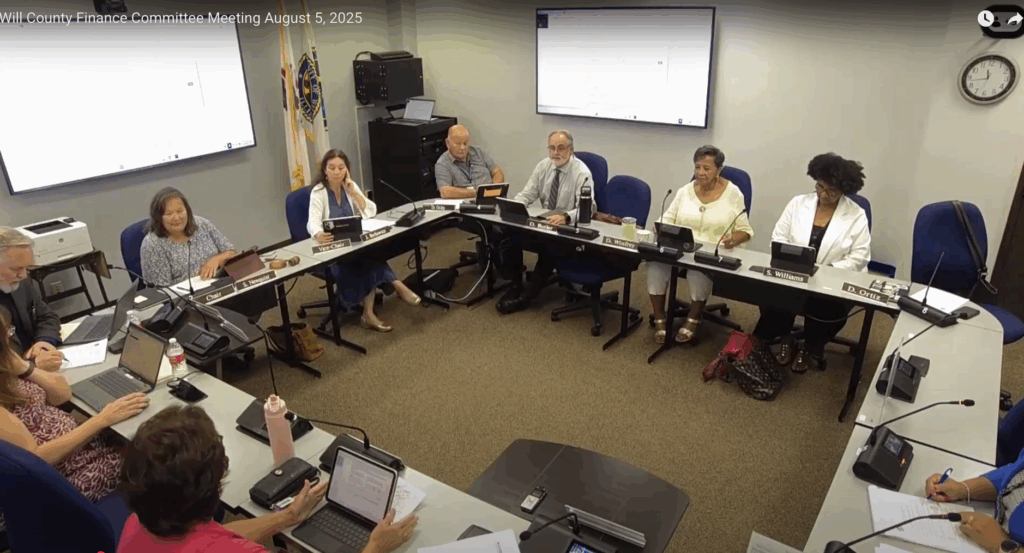
Will County Health Department Seeks $1 Million to Avert ‘Drastic’ Service Cuts from Expiring Grants
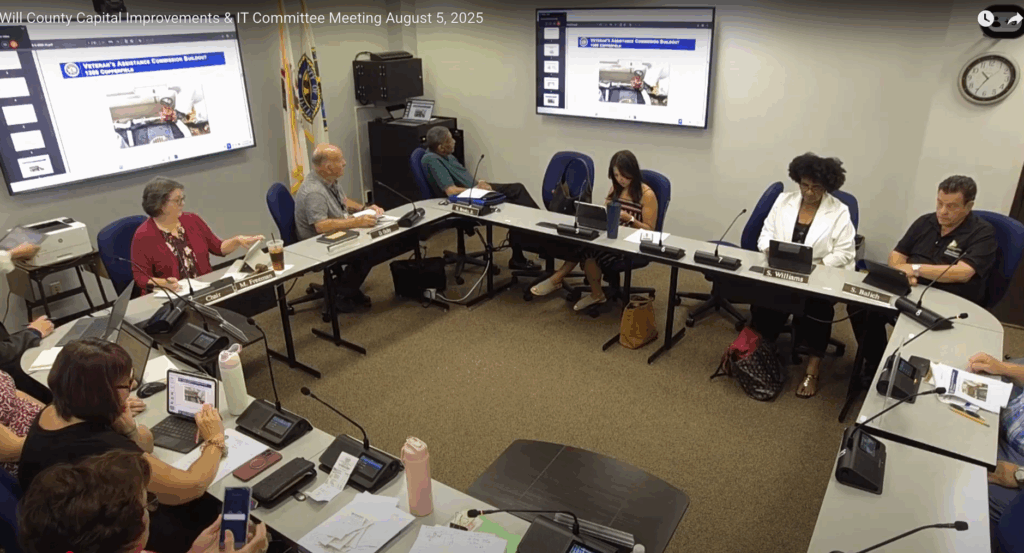
Will County’s “First-in-Nation” Veterans Center to House Workforce Services, Sparking Debate
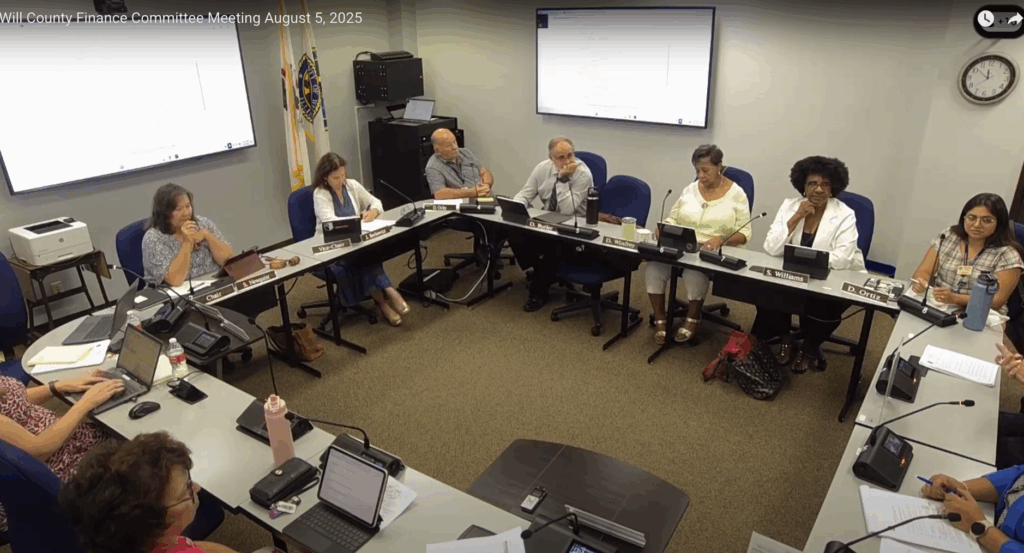
Improved Vendor Service Creates $1.2 Million Shortfall in Sheriff’s Medical Budget
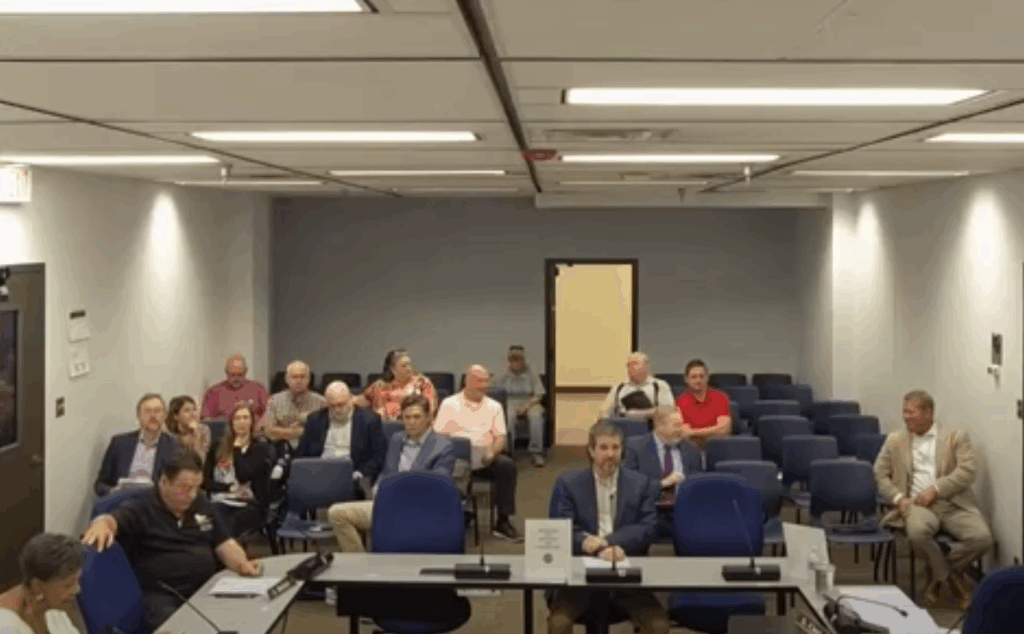
Will County Public Works Committee Unveils 25-Year Transportation Plan, Projects $258 Million Gap
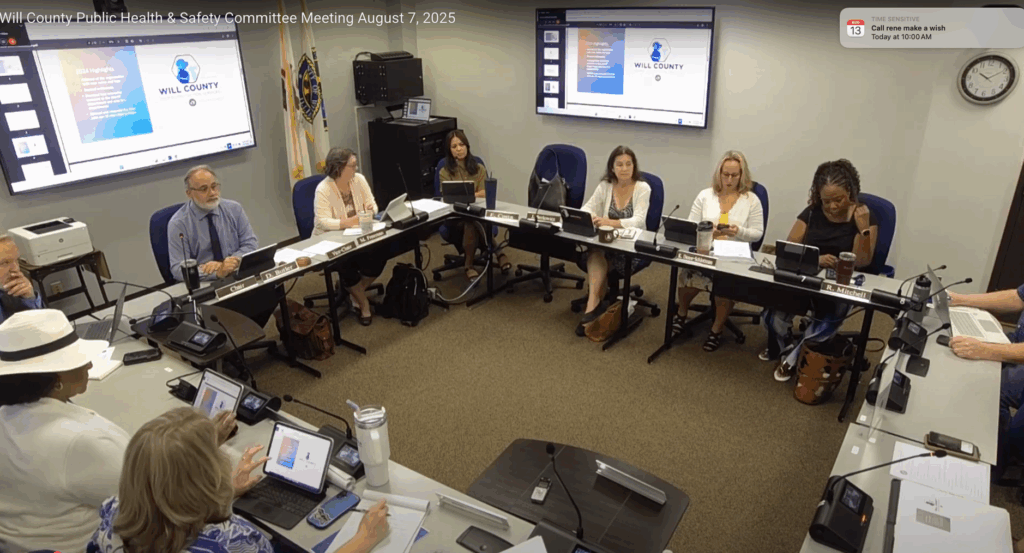
Will County Animal Protection Services Seeks New Facility Amid “Gaping Wound” of Space Crisis
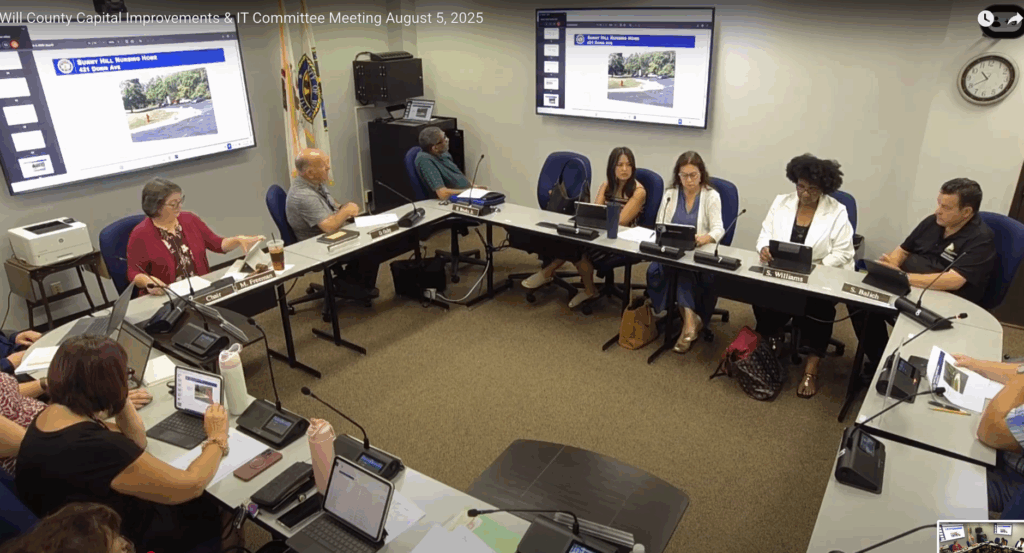
Board Confronts Animal Services Crowding, Explores Future Facility Options
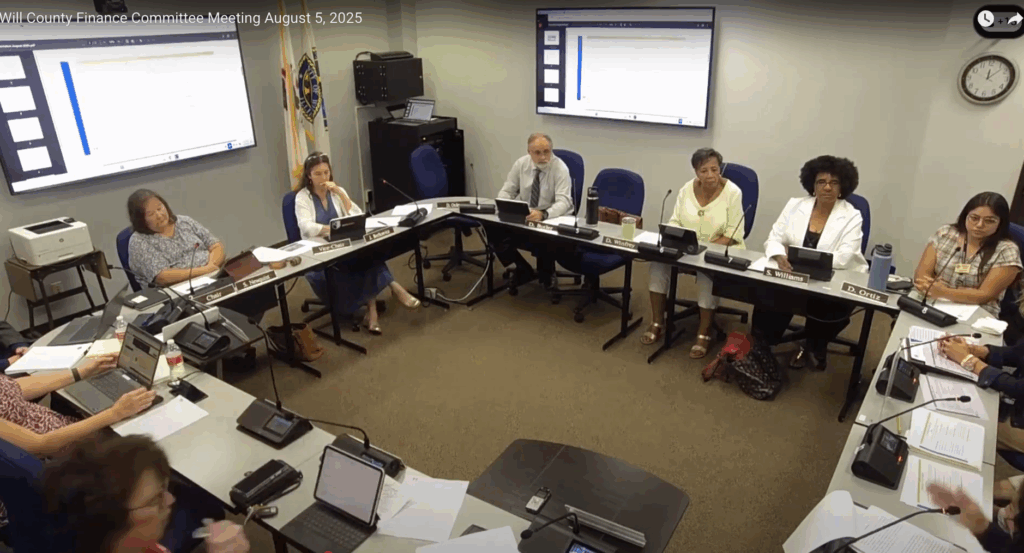
Will County Board Members Demand Transparency in Cannabis Tax Fund Allocation
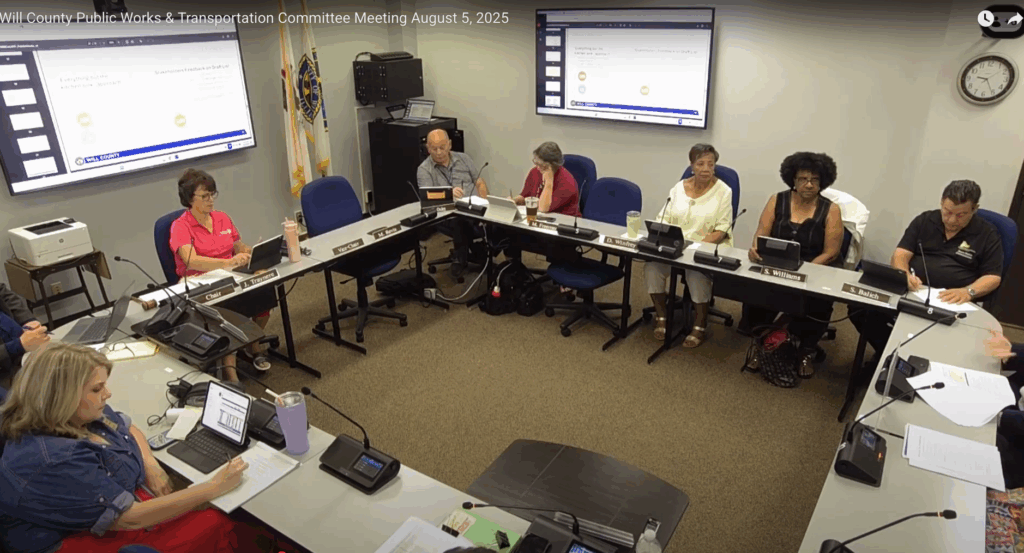
Homer Glenn Residents Push Back on 143rd Street Widening as Officials Signal “Tentative Agreement”
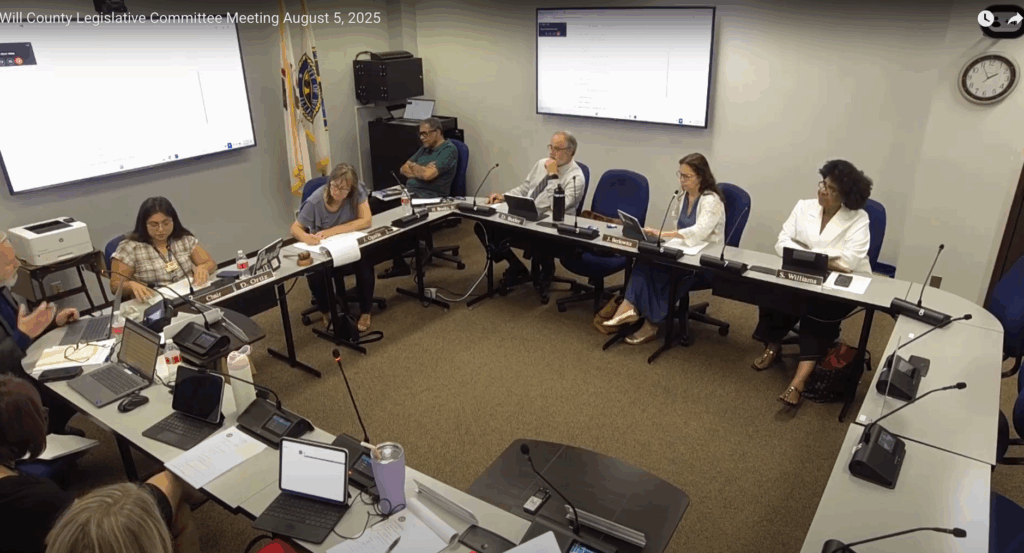
Will County Forges 2026 Federal Agenda Amid D.C. Policy Shifts, ‘Big Beautiful Bill’ Impacts
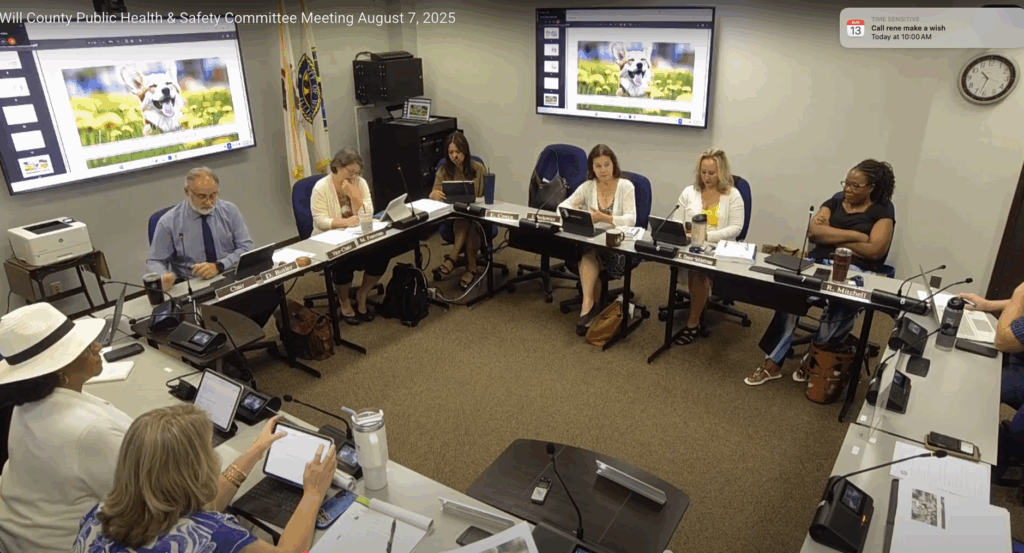
Health Department Seeks $1 Million Levy Increase to Prevent “Weakened System”
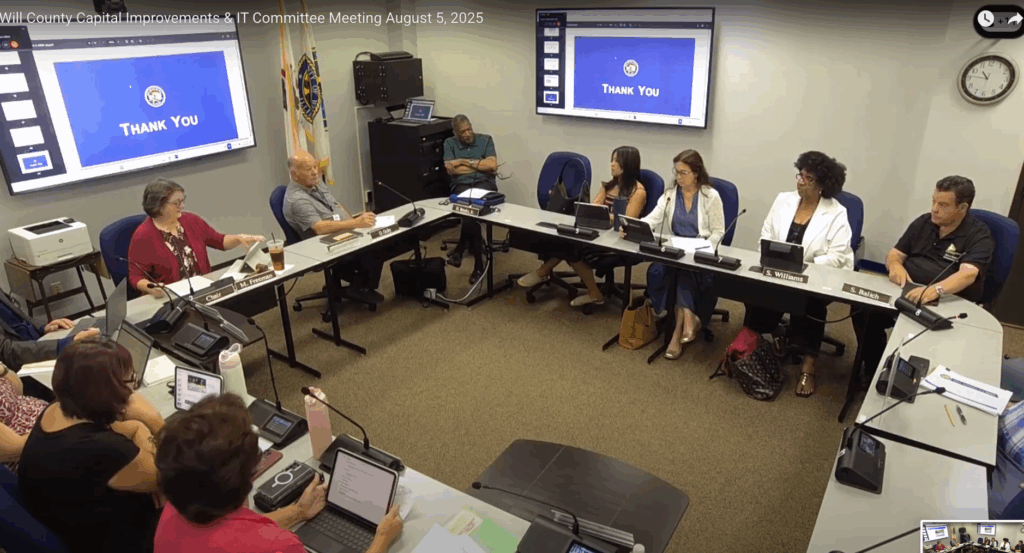
County Rolls Out New “OneMeeting” Software to Improve Public Access

Meeting Summary and Briefs: Will County Board Finance Committee for August 5, 2025
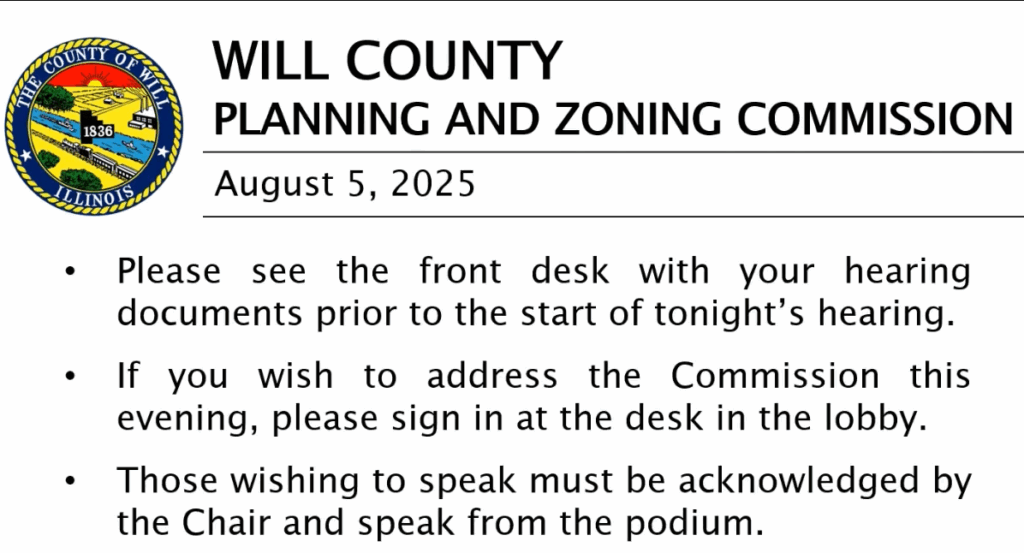
Will County PZC Approves Rezoning for Truck Repair Facility on Manhattan Road Amid Resident Concerns
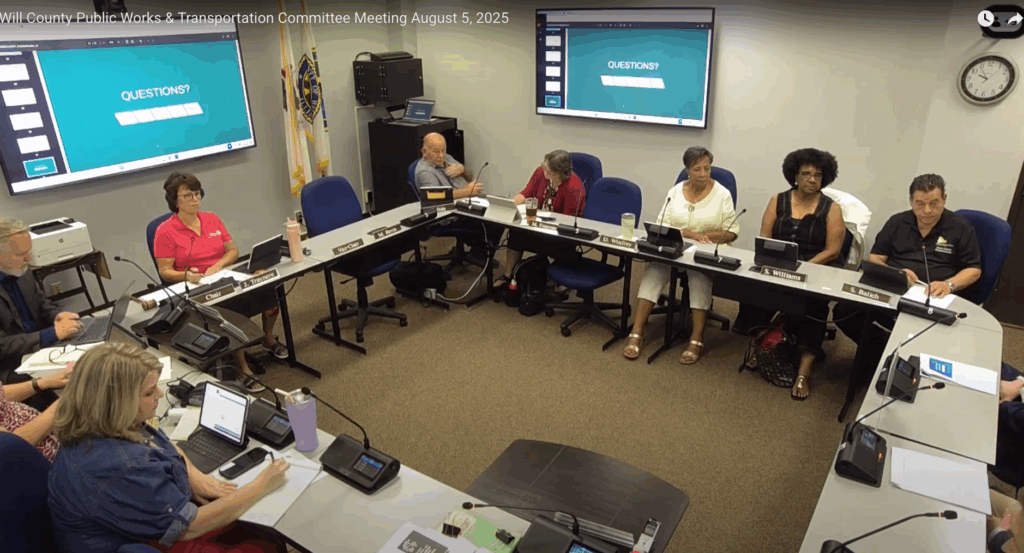
Key Stretch of Bell Road on Track for Thanksgiving Reopening, Committee Approves Additional Funds
